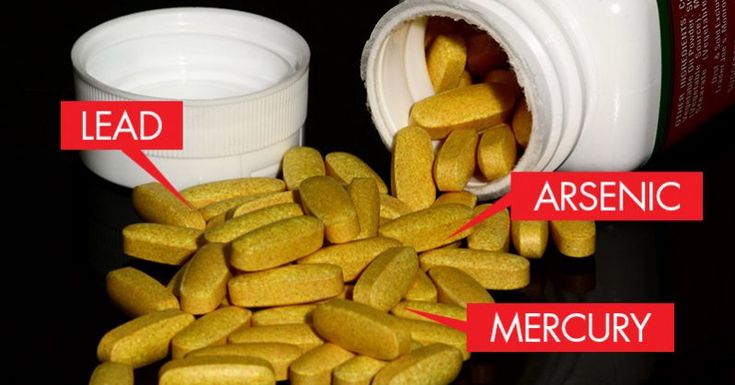The surge in popularity of sports supplements has become a notable trend among fitness enthusiasts and athletes. These products, ranging from protein powders to energy boosters, promise enhanced performance and quick results. However, beneath the glossy marketing lies a concerning reality: the potential presence of toxic ingredients in these supplements. This article uncovers the hidden dangers lurking in sports supplements, emphasizing the importance of being informed about what consumers are ingesting. It’s crucial to navigate this booming industry with awareness and caution.
Contents
- 1 The Basics of Sports Supplements
- 2 Common Harmful Ingredients in Supplements
- 3 The Hidden Dangers of Steroids and Hormones
- 4 The Impact of Excessive Caffeine and Stimulants
- 5 Misleading Labels and False Advertising
- 6 The Risk of Unregulated Herbal Ingredients
- 7 Safe Alternatives and Making Informed Choices
- 8 Advocating for Stricter Regulations and Transparency
- 9 Empower Your Fitness Journey with Informed Decisions
The Basics of Sports Supplements
Sports supplements are designed to support various aspects of physical performance, recovery, and muscle growth. They come in various forms, including powders, pills, and shakes, each claiming to offer specific benefits to enhance athletic performance. The market is flooded with options: protein supplements for muscle repair, pre-workout formulas for increased energy, and recovery aids to reduce fatigue. However, the allure of quick results often overshadows the potential risks associated with these products. Consumers need to understand what they are consuming and why.
The supplement industry operates with minimal regulatory oversight, leading to concerns about the safety and efficacy of these products. Unlike pharmaceuticals, supplements are not required to undergo rigorous testing before hitting the market. This lack of regulation can result in products containing unlisted ingredients, incorrect dosages, or even harmful substances. It’s a sector where the promise of enhanced physical performance meets the reality of potential health risks, making consumer education and caution paramount.
Common Harmful Ingredients in Supplements
A variety of toxic ingredients have been identified in some sports supplements. These include artificial sweeteners like aspartame and sucralose, which are added to enhance flavor without increasing calorie content. While they make supplements more palatable, these sweeteners have been linked to potential health issues, including digestive discomfort and altered gut bacteria. Additionally, certain supplements have been found to contain heavy metals like lead, arsenic, and mercury, contaminants that pose significant health risks.
The presence of heavy metals in supplements often results from contaminated ingredients or poor manufacturing practices. Prolonged exposure to these metals can lead to serious health problems, including kidney damage, neurological issues, and increased risk of cancer. Consumers might unknowingly ingest these harmful substances, believing they are taking steps towards better health. This highlights the importance of choosing supplements from reputable sources and being wary of products that seem too good to be true.
The Hidden Dangers of Steroids and Hormones
Some sports supplements illegally contain steroids and hormones, promising rapid muscle growth and enhanced performance. These additives can be particularly harmful, leading to a range of health issues. Short-term effects include hormonal imbalances and aggressive behavior, while long-term use can result in more severe consequences like liver damage, heart problems, and infertility. The risks are compounded by the fact that these substances are often not listed on the product label.
The legal implications of using supplements laced with steroids and hormones are significant. These substances are banned in professional sports, and their undisclosed inclusion in supplements can lead to inadvertent doping violations. Athletes and fitness enthusiasts must be vigilant, as the long-term health risks associated with these compounds far outweigh the short-lived benefits they might offer. It’s a stark reminder that what aids performance today could jeopardize health tomorrow.
The Impact of Excessive Caffeine and Stimulants
Caffeine and other stimulants are common in pre-workout supplements, intended to boost energy and focus during exercise. In moderate amounts, caffeine can indeed enhance performance, but excessive consumption leads to adverse effects. These include jitteriness, increased heart rate, and disrupted sleep patterns. Over time, users may develop a tolerance, requiring higher doses to achieve the same effects, which further elevates the risk of negative side effects.
The danger of dependency on these stimulants is a serious concern. Regular high consumption can lead to withdrawal symptoms like headaches, fatigue, and irritability when caffeine is not consumed. This dependency cycle can detract from the overall health and fitness goals that users are trying to achieve. It’s a fine line between using these stimulants to enhance workouts and becoming reliant on them for everyday energy and motivation.
Misleading Labels and False Advertising
The issue of misleading labels in the sports supplement industry is a significant concern. Many products boast claims of “all-natural ingredients” or “guaranteed results,” which can be deceptive or outright false. The lack of stringent FDA regulation allows for this ambiguity, leaving consumers vulnerable to misleading information. These deceptive practices not only misguide users about the benefits of the products but can also hide potential risks. It’s essential for consumers to approach such claims with skepticism and conduct thorough research before purchasing.
False advertising in the supplement industry often exploits the lack of consumer knowledge. For instance, terms like “clinically proven” or “doctor recommended” are used liberally, without substantial backing. This can lead to consumers investing in products that are ineffective at best and harmful at worst. Case studies have shown how certain brands exaggerated the benefits of their supplements, leading to legal battles and consumer distrust. It underscores the need for more transparency and honesty in marketing sports supplements.
The Risk of Unregulated Herbal Ingredients
Herbal ingredients are commonly found in sports supplements, touted for their natural health benefits. However, the unregulated nature of these ingredients can pose significant risks. Without proper standardization, the potency and purity of herbal supplements can vary greatly, leading to unpredictable effects. Some herbs can interact adversely with medications, causing harmful side effects or diminishing the efficacy of prescription drugs. Consumers often assume that “natural” equates to “safe,” but this is not always the case with herbal supplements.
The variability in herbal supplements can lead to serious health consequences. For example, some herbs can have stimulant effects or impact hormone levels, leading to unexpected and potentially dangerous outcomes. The lack of rigorous testing and quality control in the production of these supplements exacerbates these risks. Consumers should exercise caution and consult healthcare professionals before incorporating herbal supplements into their regimen, especially if they are on other medications.
Safe Alternatives and Making Informed Choices
In the quest for fitness and health, there are safer alternatives to risky sports supplements. Prioritizing a balanced diet rich in natural nutrients is often more beneficial than relying on supplements. Foods like lean proteins, whole grains, and fresh fruits and vegetables provide essential vitamins and minerals without the risk of harmful additives. For those who feel the need for supplementation, choosing products with minimal and transparent ingredient lists is crucial. Consulting with healthcare professionals can also guide consumers toward safe and effective supplement choices.
Making informed choices about sports supplements involves thorough research and understanding one’s own health needs. Reading labels carefully, understanding the purpose of each ingredient, and knowing the recommended dosages are key steps. It’s also beneficial to look for third-party testing and certification, which can provide an additional layer of assurance about a product’s quality and safety. By being informed and cautious, consumers can make choices that support their health and fitness goals without compromising their well-being.
Advocating for Stricter Regulations and Transparency
The need for stricter regulations in the sports supplement industry is evident. Increased oversight could ensure that products are safe, effective, and accurately labeled. This would protect consumers from the risks associated with unregulated and potentially harmful ingredients. Government bodies and health organizations play a crucial role in this, and there’s a growing call for these entities to implement and enforce stricter standards. Such changes could significantly improve the safety and reliability of sports supplements.
Consumers also have a role in advocating for change and transparency in the supplement industry. By demanding more transparent labeling, evidence-based claims, and safer ingredients, consumers can drive the market towards higher standards. Supporting brands that are committed to quality and transparency can also make a difference. Additionally, sharing information and experiences within communities can raise awareness about the risks associated with certain supplements. Collective consumer action can be a powerful force in pushing for industry reform and better health protection.
Empower Your Fitness Journey with Informed Decisions
In navigating the complex world of sports supplements, awareness and caution are key. This exploration underscores the importance of informed choices and the need for industry reform. As consumers, you have the power to demand safer products and clearer information. By choosing reputable brands, advocating for stricter regulations, and prioritizing natural nutrition, you can safeguard your health while pursuing fitness goals.










